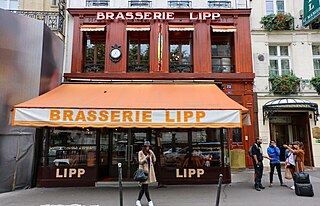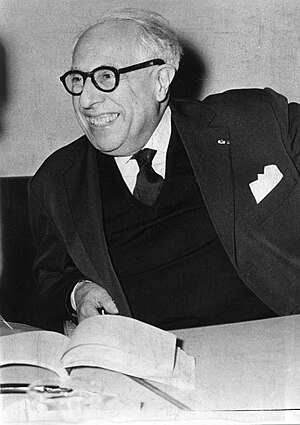
Marguerite Germaine Marie Donnadieu, known as Marguerite Duras, was a French novelist, playwright, screenwriter, essayist, and experimental filmmaker. Her script for the film Hiroshima mon amour (1959) earned her a nomination for Best Original Screenplay at the Academy Awards.

The Prix Théophraste-Renaudot or Prix Renaudot is a French literary award.

Pierre-Jean Rémy is the pen-name of Jean-Pierre Angremy who was a French diplomat, novelist, and essayist. He was elected to the Académie française on 16 June 1988, and won the 1986 Grand Prix du roman de l'Académie française for his novel Une ville immortelle.

André Salmon was a French poet, art critic and writer. He was one of the early defenders of Cubism, with Guillaume Apollinaire and Maurice Raynal.
François Bon is a French writer and translator.
Clément Rosset was a French philosopher and writer. He was a professor of philosophy at the University of Nice Sophia Antipolis, and the author of books on 20th-century philosophy and postmodern philosophy.
Patrick Besson is a French writer and journalist.

Jules Roy was a French writer. "Prolific and polemical" Roy, born an Algerian pied noir and sent to a Roman Catholic seminary, used his experiences in the French colony and during his service in the Royal Air Force during the Second World War as inspiration for a number of his works. He began writing in 1946, while still serving in the military, and continued to publish fiction and historical works after his resignation in 1953 in protest of the First Indochina War. He was an outspoken critic of French colonialism and the Algerian War of Independence and later civil war, as well as a strongly religious man.

Armand Robin was a Breton poet, translator, and journalist.

Georges-Emmanuel Clancier was a French poet, novelist, and journalist. He won the Prix Goncourt (poetry), the Grand Prize of the Académie française, and the grand prize of the Société des gens de lettres.
The Prix Méditerranée is a French literary award. It was created in 1984 in Perpignan by the Mediterranean Centre of Literature (CML) to promote cultural interaction among the numerous countries surrounding the Mediterranean Sea. Two awards are handed out every year, the Prix Méditerranée itself and the Prix Méditerranée Étranger. The latter is given to a writer from the Mediterranean basin whose original work has been translated into French.

Gérard de Cortanze is a French writer, essayist, translator and literary critic. He won the Prix Renaudot in 2002 for his historical novel Assam. He was made a chevalier of the Legion of Honour in 2009.

The Grand prix des lectrices de Elle is a French literary prize awarded by readers of Elle magazine.
The Roger Nimier Prize is a French literature award. It is supposed to go to "a young author whose spirit is in line with the literary works of Roger Nimier". Nimier (1925–1962) was a novelist and a leading member of the Hussards movement. The prize was established in 1963 at the initiative of André Parinaud and Denis Huisman and is handed out annually during the second half of May. It comes with a sum of 5000 euro.

Brasserie Lipp is a brasserie located at 151 Boulevard Saint-Germain in the 6th arrondissement of Paris. It sponsors an annual literary prize, the Prix Cazes, named for a previous owner.
Deux sonnets de Jean Cassou is a song cycle for baritone and piano written by the French composer Henri Dutilleux in 1954. He later transcribed or allowed transcriptions of the work for various ensembles.

Rama Ayalon is an Israeli French-to-Hebrew translator. She has translated more than 100 books of classic and contemporary literature in the fields of prose, philosophy, and psychoanalysis. Her translations include important philosophical works such as Pensées by Blaise Pascal and Totalité et infini by Emmanuel Lévinas. Among the prose authors she has translated are Michel Houellebecq, Georges Simenon, Marguerite Duras, Guy de Maupassant, Romain Gary, Milan Kundera, Delphine de Vigan, and Leïla Slimani.
The Prix France Télévisions are annual literary awards in France. Since 1995, the national television broadcaster France Télévisions has awarded two prizes, for a novel and an essay. The judging panel consists of 15 television viewers chosen from across France, on the basis of their cover letters.
The grand prix de littérature de la SGDL is a French literary prize created by the Société des gens de lettres in 1947 in order to reward an author for the whole of his work, and which is given during the spring session of the society.
Alexandre Blokh, called Jean Blot, was a French writer, translator, and senior civil servant of Russian origin.










